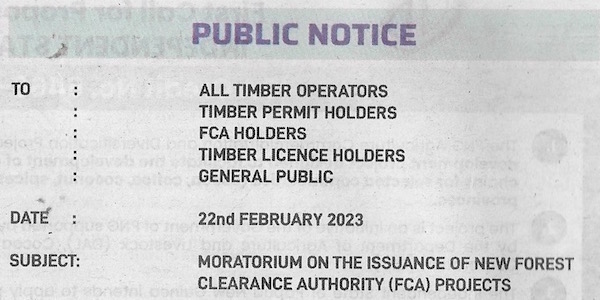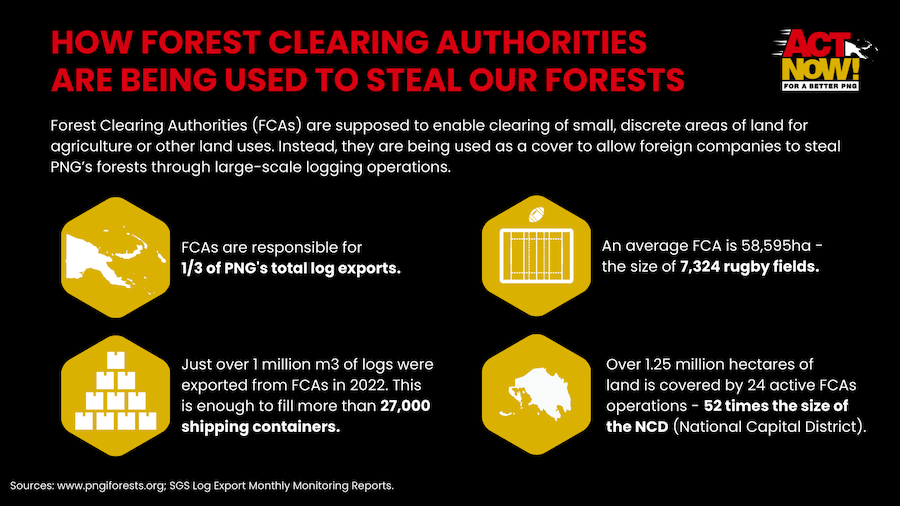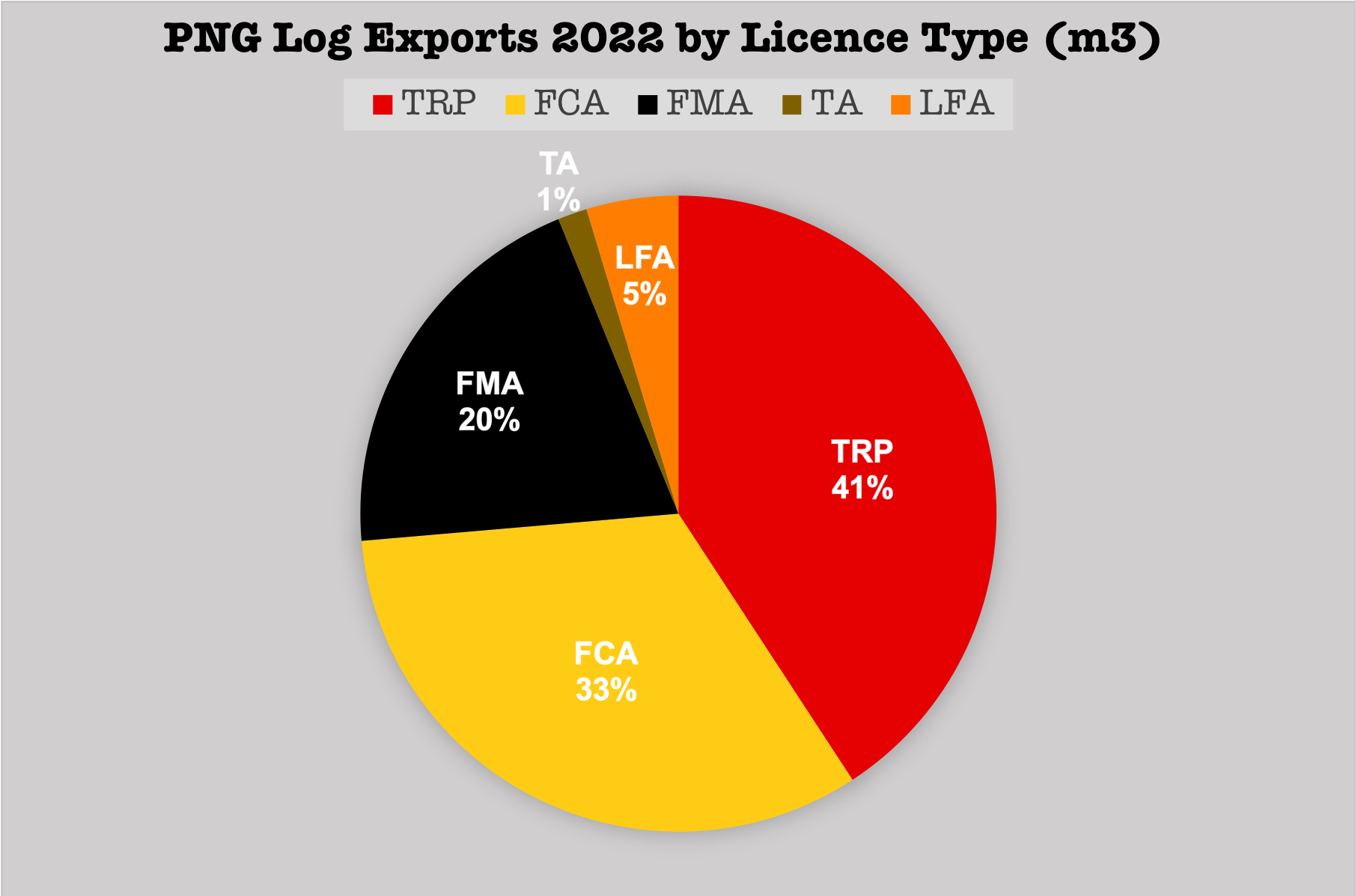
Evidence from official government sources suggests the PNG Forest Authority may be breaching a moratorium on new Forest Clearing Authority projects.
A twelve month moratorium on the issuing of new FCAs was announcd by the National Forest Board in February 2023 in response to widespread concerns the licences are being misused.
The Moratorium is supposed to run from January to December 2023, and is to be accompanied by an audit of all existing FCA projects.
An analysis of log export data by ACT NOW appears to show though that three new FCA projects have recently started log exports.
The three new projects are Moile Integrated Agriculture project in West Sepik, Agulu Reserve in West New Britain and Wanigela Tree Plantation No.2 in Oro Provinces.
According to official records first log exports from Moile took place in August, from Agulu in July and from Wanigela in June.
All three logging projects are being conducted by Malaysian owned logging companies, Emo Holdings, Northern Forest Products and Noble Investments (a part of the Vanimo Jaya group of companies).
Forest Clearing Authorities are a particularly controversial type of forestry licence and have been widely linked to illegal logging.

Two recent case studies published by ACT NOW, Ten Years Without A Crop and A New Forest Grab, illustrate how logging companies use false or inflated claims of agriculture planting to obtain the FCA permits which are then used as cover for large-scale selective logging operations.
Selective logging is only supposed to be authorised under the Forestry Act through a long term Forest Management Agreement to ensure sustainable logging and the safeguarding of landowner rights. These requirements are being by-passed through the approval of bogus FCA projects.
There are currently 24 FCA projects operating all across Papua New Guinea and they account for one-third of total log exports. In contrast FMA projects account for just 20% of total log exports.

The abuse of FCA logging permits is just one part of the wider problem of illegal logging in PNG. A recent Timber Legality Risk Assessment published by ACT NOW concludes there is a high risk that almost all logging in PNG is unlawful because of a failure to ensure the prior informed consent of landowners, failure to follow proper process under the Forestry Act or a lack of effective monitoring to ensure sustainable forest management. There are also issues of human rights abuses, financial misreporting and tax evasion.
As well as breaching the National Forest Board’s moratorium, the commissioning of new FCA projects also calls into question PNG’s commitment to reducing forest loss and degradation and the recently announced funding of $100 million from the French government to support such measures.
While the Marape government has committed to the phasing out of almost all export logging by 2027 in its Medium Term Development Plan, current rates of logging are on course to exceed the mandated limits. The new FCA projects are likely to worsen this situation.
